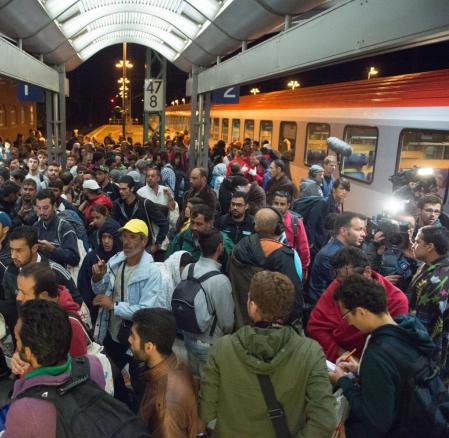By Brian Casey McDermott

Welt.de
2.1 Welsch’s Critique of The Traditional Concept of Single Cultures
Welsch goes on further to say how these concepts are not feasible in today’s world. He attests that this is the old way of thinking and that it is fallible and archaic in the way cultures really work. With this concept the main idea is to make everything within the culture even more homogenous while rejecting and resisting other foreign and strange cultures along with different and outside influences. As Welsch mentions, within any given culture there are subcultures and alternative groups that although they may have the same history and language as those around them that their views, ideas, and values are completely different and do not adhere to the perceived norms and homogenous characteristics and regularities. He illustrates how modern societies are heterogeneous and multifaceted within themselves. They are characterized by vertical differences in regards to a society’s alternative scene or an individual’s level of income which determines the type of area they live in, i.e. in a working-quarter or in a well-to-do residential district and describes how such different scenes hardly exhibit any profound similarities. He also talks about horizontal divisions which include such factors as the gender or sexual orientation of the individuals who live within that society. The inner complexity of modern cultures and their heterogeneity are exhibited through such examples. Furthermore he states how the concept of ethnic consolidation and the idea of folk-bound ideologies exhibit political danger and stresses how cultures are not (and were not in the past) ever completely isolated or have been able to avoid contact with any other differing influences and environments. Considering intercultural delimitation he talks about how the goal of complete assimilation and uniformity within one’s own culture can produce feelings of contempt and hatred towards other cultures and anything that is foreign or different from what is considered to be the norm.
___________________________________________________________________
Contents
2 Traditional Concept of Single Cultures
2.1 Welsch’s Critique of The Traditional Concept of Single Cultures
3 Interculturality and Multiculturality
3.1 Interculturality and Welsch’s Critique
3.2 Multiculturality and Welsch’s Critique
Pingback: Transculturality and the Refugees in Germany (VII) | Galicien Zentrum der Universität Heidelberg
Pingback: Transculturality and the Refugees in Germany (V) | Galicien Zentrum der Universität Heidelberg
Pingback: Transculturality and the Refugees in Germany (VI) | Galicien Zentrum der Universität Heidelberg